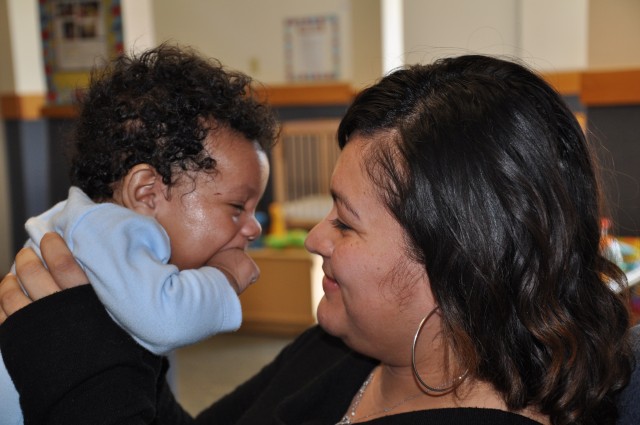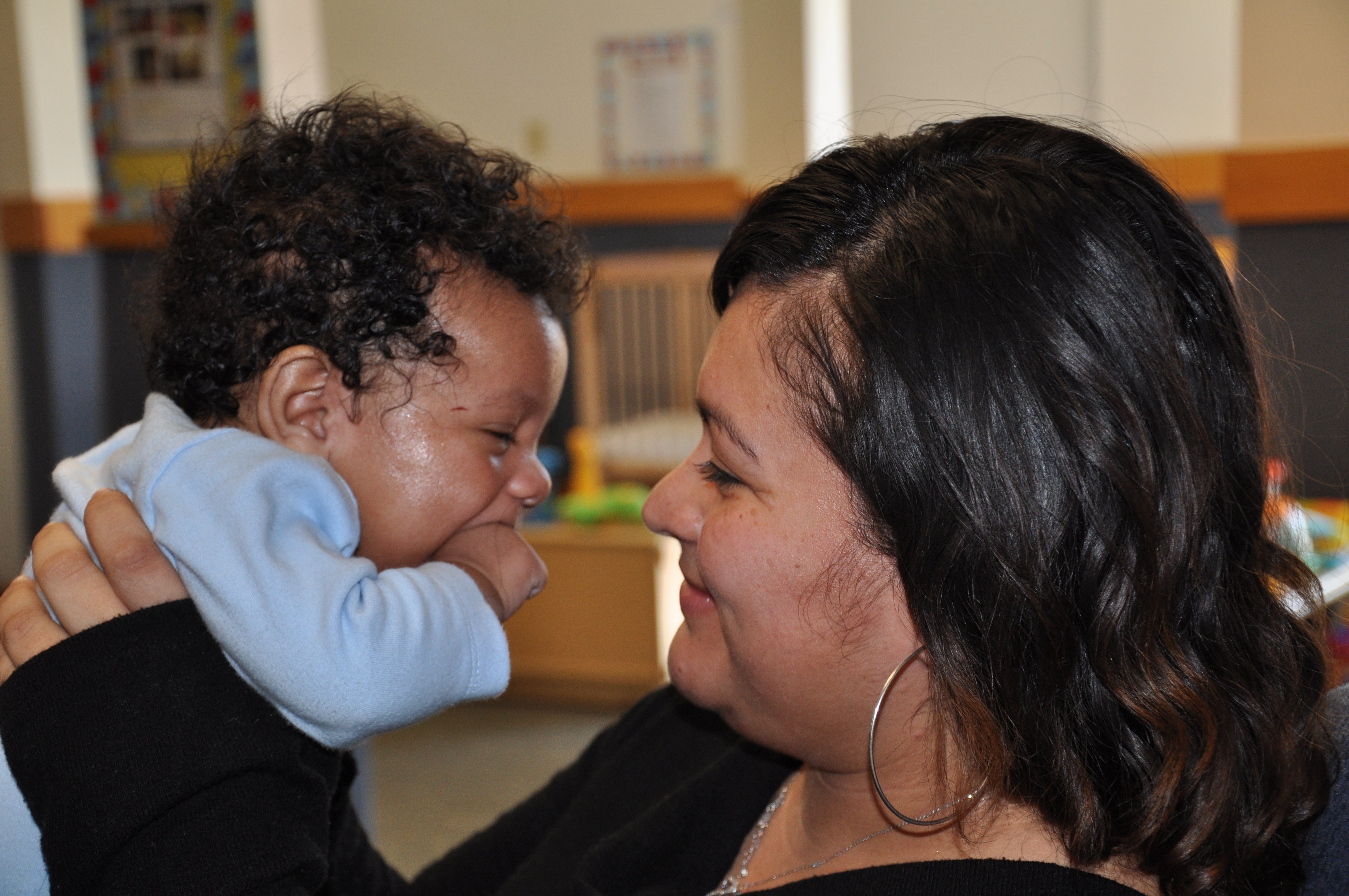
FORT JACKSON, S.C. --At Fort Jackson's recent Army Family Action Plan conference, delegates discussed and proposed recommendations to Col. James Love, garrison commander, and Maj. Gen. James Milano, commanding general, regarding two issues specifically affecting mothers after childbirth.
The days and weeks after childbirth can be challenging for moms, dads and newborns.
Moms especially must adapt to the many changes they experience in their bodies and hormones after delivery.
Many mothers deal with physical pain, fatigue, and sometimes, depression. In addition, they must learn to juggle tasks such as changing diapers, and soothing, feeding and bonding with their babies.
And that's all at home.
For working moms, balancing motherhood with a career can be even more taxing.
Over the years, the Army has improved its policies and regulations to accommodate mothers who make up part of its workforce, both as Soldiers and civilians.
Both proposed issues, along with five other Fort Jackson AFAP issues, will be forwarded to the TRADOC AFAP conference in the spring, when they will be reviewed and prioritized among all TRADOC issues.
The first issue calls for the Army to extend its deployment deferral from six to 12 months for female Soldiers breastfeeding their newborns.
"Currently, Army regulation allows only a six-month non-deployment time for postpartum breastfeeding mothers," said Capt. Travis Drayton, an AFAP workgroup spokesperson. "Studies have proven longer breastfeeding increases health benefits for both mother and child, decreases costs of medical care, and reduces environmental costs for disposal of formula cans and bottles."
The World Health Organization and the American Academy of Pediatrics recommend mothers breastfeed exclusively for up to six months, then supplement breastfeeding for up to two years of age or more.
The Departments of the Navy and the Air Force have extended their current policies to allow their service members a 12-month deferment from deployment, Drayton said.
Only one Army command, at the Landstuhl Regional Medical Center in Landstuhl, Germany, has done the same.
Love said he was surprised the Army has not already followed suit and that he was in favor of the recommendation for extended dwell time, which he emphasized would be exclusively for breastfeeding mothers.
"It makes sense," Love said.
Milano said that the issue would be a "readiness consideration" for the Army, but said the recommendation would be worth sending higher.
The second issue calls for the Army to allow civilian federal employees who experience healthy childbirths to participate in the Voluntary Leave Transfer Program so they can stay home longer with their newborns.
The Voluntary Leave Transfer Program allows civilian employees to donate annual leave to other employees who face personal or family medical emergencies and who have exhausted their own available paid leave. During pregnancy and childbirth, donated annual leave may be used only for medical emergencies such as for the mother's period of incapacitation or the illness of a child, and may not be used to care for a healthy child.
"Civil service employees are ineligible to participate in the Voluntary Leave Transfer Program after childbirth unless there is an emergency medical condition," said Maj. Jeff Shearin, an AFAP workgroup spokesperson. "While absence from work after childbirth is covered under the Family and Medical Leave Act, women must use either sick leave or annual leave to be compensated for their absence. Many women have not accumulated enough leave to cover their absence; therefore they must enter a leave-without pay status. This causes many short and long term hardships, for example, loss of income, delays of grade step-increases, and changes in service computation dates for retirement.
"What we're asking for is that this population of women with healthy childbirths be admitted into the transfer program that is already in place for medical emergencies - which currently includes mothers dealing with complicated childbirths - to be able to have leave donated to them by co-workers without having to go into leave-without-pay status following childbirth."
Love said he thinks the recommendation is a great idea, especially since the transfer program already exists and would only need to be modified.
Marisa Willis, a Fort Jackson Exceptional Family Member Program specialist, thinks it is a great idea too.
"I am hopeful for change," Willis said.
Willis was pregnant when she began working for the EFMP in June. By the time she gave birth to her son in August, she had only accrued two weeks of annual and sick leave to use for maternity leave. Because she had a healthy childbirth, she was ineligible to receive a transfer of leave time from co-workers in her office who were willing to donate to her their "use or lose" leave time.
Willis took five weeks of leave without pay.
And even with the financial hardship, Willis said it was difficult for her to return to work and place her 7-week-old son in day care.
"I felt guilty for leaving him in the care of strangers and worrying if they would feed him, change him or even cuddle with him when needed," Willis said. "What I did to ease my transition was remind myself that feeling guilty is absolutely normal and ensured that I spent one-on-one time with him every morning by cuddling and playing with him. Those few precious moments start my and his day with joy, and that joy will carry me through the sometimes seemingly endless hours until I see him again."

Social Sharing